The Royal Air Force has paid tribute to Squadron Leader George Leonard ‘Johnny’ Johnson MBE DFM RAF, following his funeral. At the time of his death, he was the last surviving member of the original Dambusters.
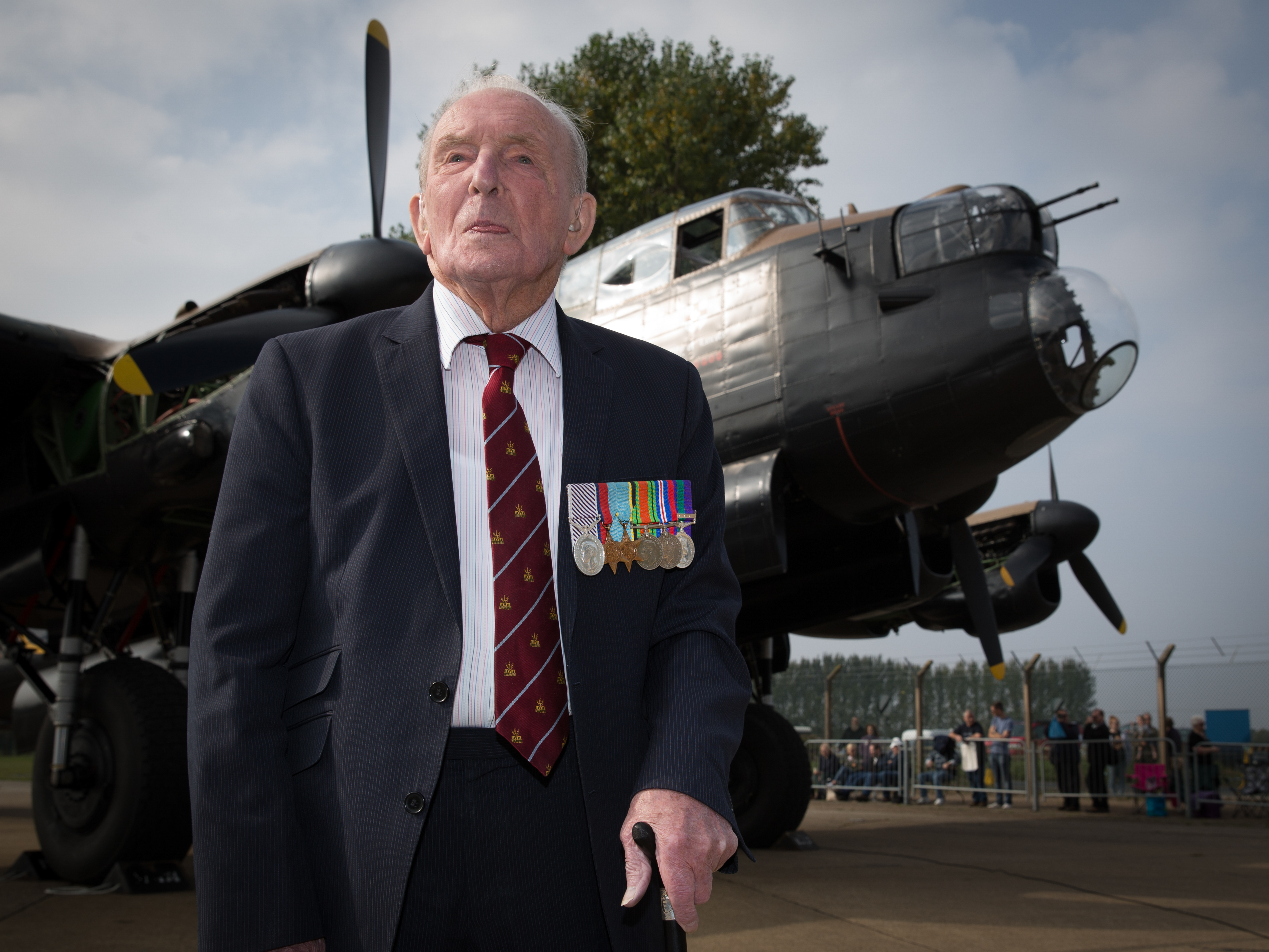
Wreaths to remember Johnny Johnson and his fellow Dambusters were laid by Air Vice Marshal Simon Edwards, the Assistant Chief of the Air Staff (Strategy), at the RAF Bomber Command Memorial in central London, and by the RAF Scampton Station Commander, Wing Commander Neill Atkins, at 617 Squadron’s World War Two hangar at RAF Scampton.
We owe an enormous debt of gratitude to Johnny Johnson and all his generation who fought for our freedom in World War II. Their courage, skill and resilience continue to inspire the Royal Air Force to this day.
Air Chief Marshal Sir Mike Wigston
The Chief of the Air Staff
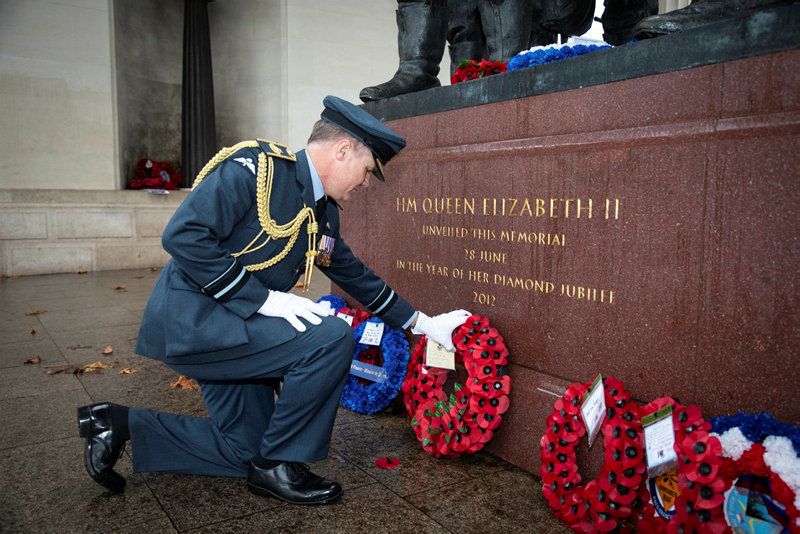
Johnny’s contribution to the war effort, and that of his colleagues, has continued to be recognised by the RAF and the wider public right up to the present day. He was a much-loved member of the RAF family and a well-known attendee at key World War II memorial events over the years.
Many current Service personnel had the privilege of meeting him on these occasions and hearing more about his life and service. He also attended the Pride of Britain Awards in 2018, as part of the RAF’s 100th birthday celebrations and was delighted to share in those celebrations.
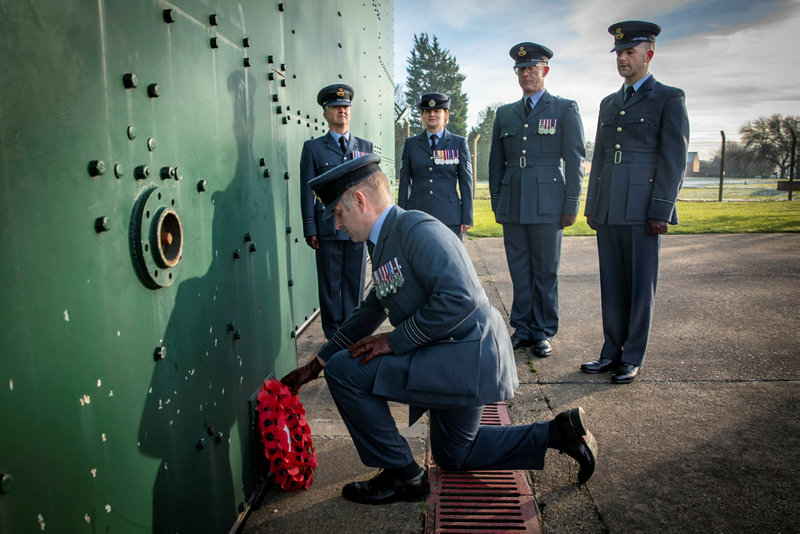
The courageous actions of Johnny, and his comrades on 617 Squadron during Operation Chastise (the famous ‘Dambusters’ mission) are enshrined in the history of RAF Scampton. While we remember Johnny personally, Station personnel have today taken time to reflect on the brave actions of the many thousands of aircrew who flew in Bomber Command, so many of whom laid down their lives in World War Two.
Wing Commander Atkins
RAF Scampton Station Commander
Following training as a Lancaster bomb aimer and multiple operational sorties over Europe, Johnny Johnson went on to take part in arguably the most famous bombing raid of World War Two, for which he was awarded the Distinguished Flying Medal. In 2017, he was also made a Member of the Order of the British Empire.
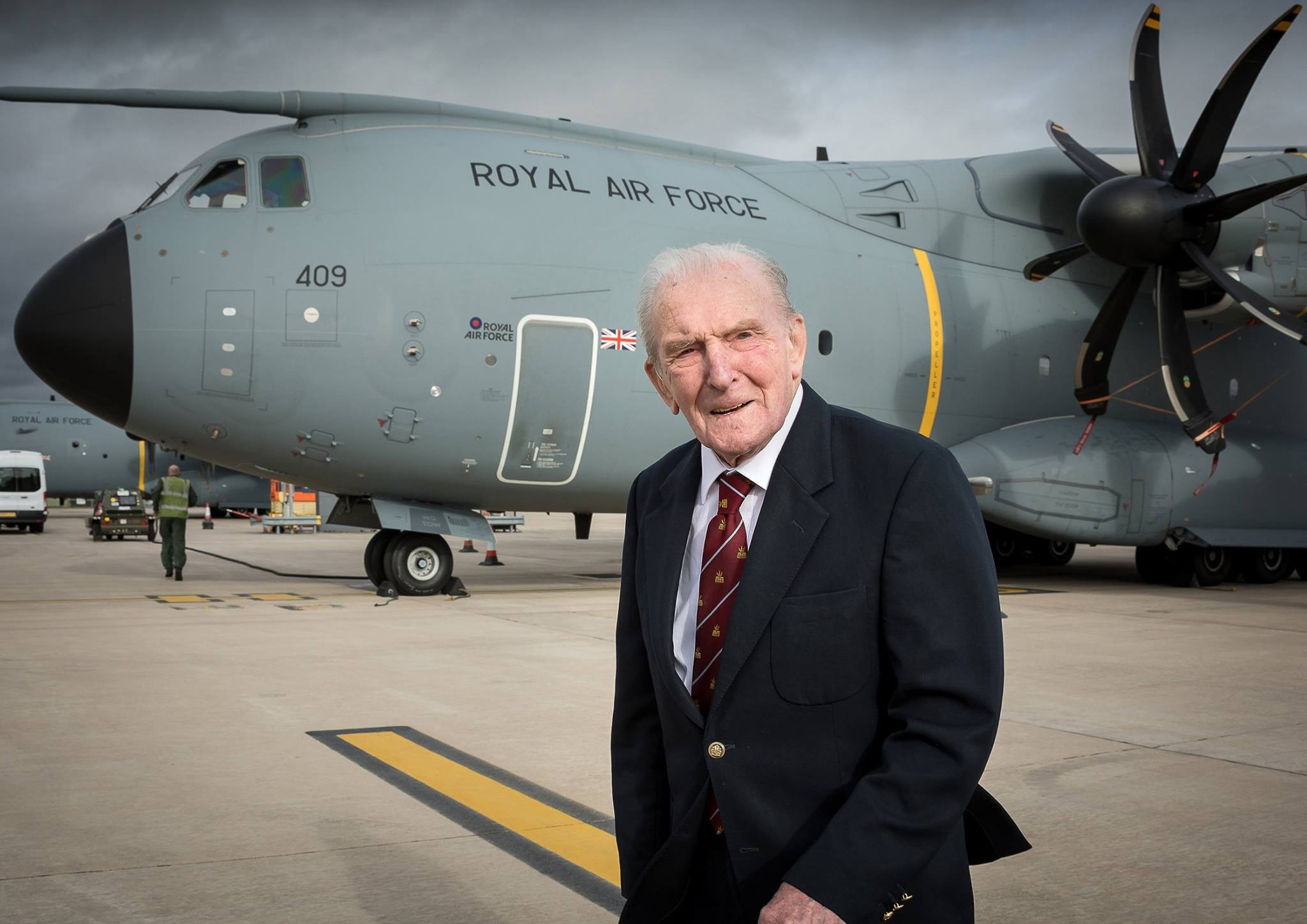
As Johnny Johnson is laid to rest, the current members of 617 Squadron pause and reflect on the service of Johnny and the rest of the original Dambusters. The famous raid that gives us our squadron name, was a feat of great daring, but also significant technical innovation.
The weapons techniques and equipment were at the cutting edge of technology and today, as the first front line squadron in the RAF to fly the fifth generation F-35B Lightning, we are striving to maintain that tradition of technical innovation that our squadron forebears set right from the beginning.
Wing Commander Campbell
Officer Commanding 617 Squadron
Johnny volunteered to join the RAF in 1940 as aircrew and after training in Florida, became an Air Gunner before being posted to 97 Squadron, that was then based at RAF Woodhall Spa. His first operational raid was to Danzig now known as the city of Gdynia, Poland in 1942. This first sortie however was aborted due to an engine failure. The following night Johnny and the rest of his crew was part of a successful raid on the city of Nuremberg in southern Germany.
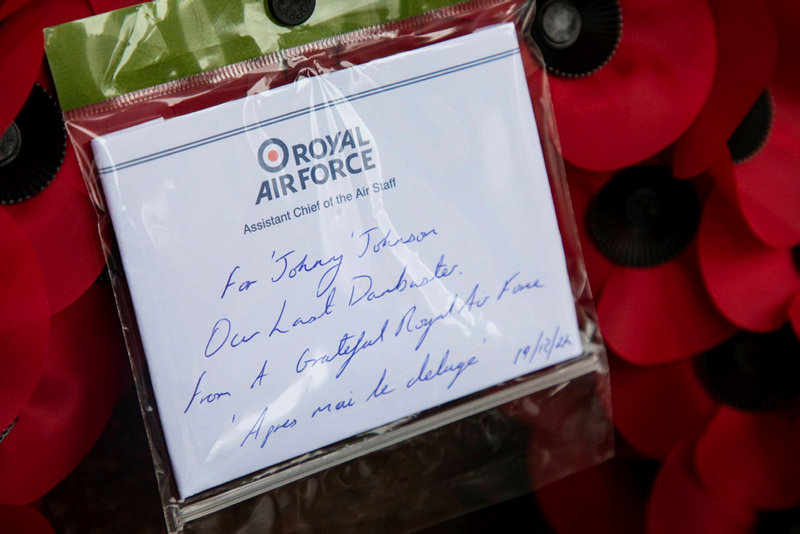
After training to become a Bomb Aimer at RAF Fulbeck, Johnny returned to 97 Squadron. His first raid as a Bomb Aimer was to the southern German city of Munich. During this raid his Avro Lancaster bomber was forced to make an emergency landing at RAF Bottesford near Grantham, after suffering damage after being attacked by German night fighters. Johnny flew on a further 18 missions with 97 Squadron.
In March 1943, aircrew from across Bomber Command were selected to form a new squadron for a special mission. This new squadron became 617 Squadron, and the special mission was Operation Chastise, the daring and innovative attacks on the Eder, Sorpe and Möhne Dams that supplied hydro-power and water to the industrial Ruhr region of Germany.
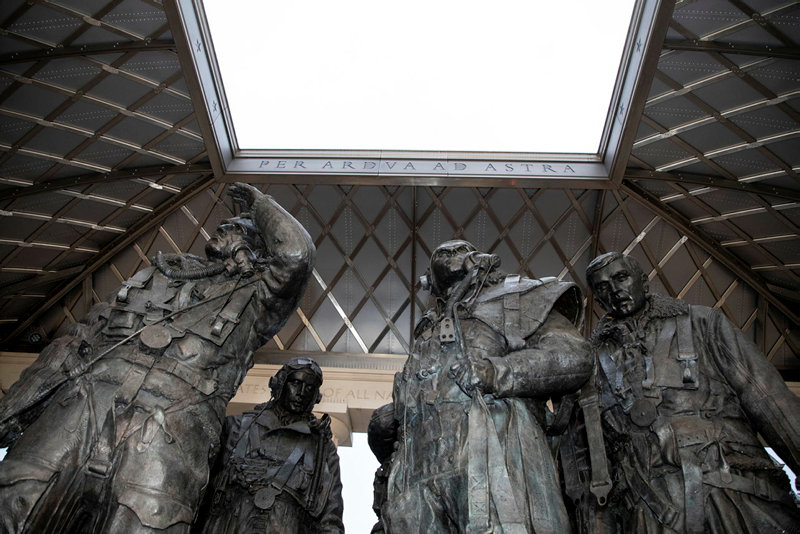
Led by Wing Commander Gibson, who was awarded a Victoria Cross for the operation, Johnny flew as a member of the crew of Lancaster “T-Tommy,” flown by American Joe McCarthy, who was serving with the Royal Canadian Air Force and who had been Johnny’s pilot for most of his operational sorties with 97 Squadron.
Johnny’s Lancaster was detailed to attack the Sorpe Dam which required a different style of attack than that carried out on the Eder and Möhne Dams. For this dam, the Lancasters had to fly 60 feet above the dam along its length. For Johnny’s Lancaster it took ten attempts before he was finally able to release the bomb.
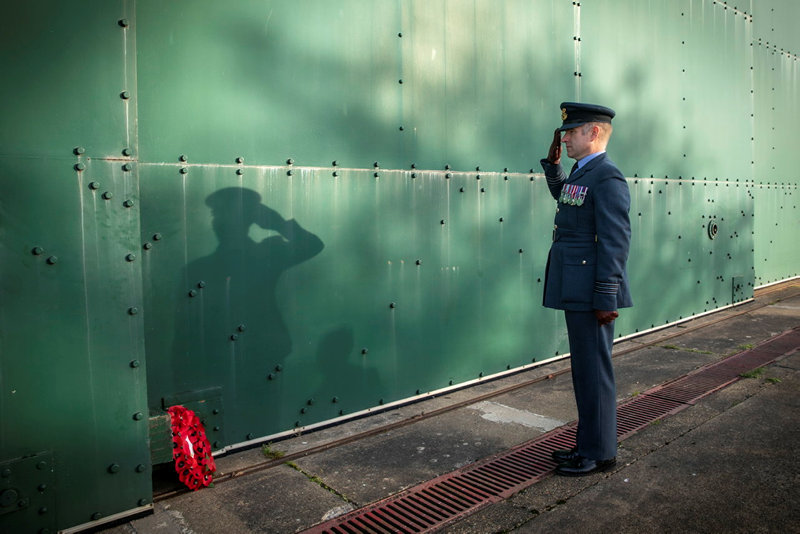
The dam was damaged, contributing to thousands of Germans having to withdraw from their Atlantic defences to repair the dams. Over 100 factories and 33 bridges were impacted. The feat earned 617 Squadron the name ‘Dambusters,’ after the complex planning, ingenuity, skill and bravery it took to carry out the raid.
Johnny went on a further 19 missions with 617 Squadron, before working as a bombing instructor until the end of the War. He then served as a Commissioned Officer navigator with both 100 and 120 Squadrons.
Retiring from the RAF in 1962, he trained as a teacher. Initially teaching in primary schools, before becoming involved in adult education, including teaching psychiatric patients at Rampton Hospital.
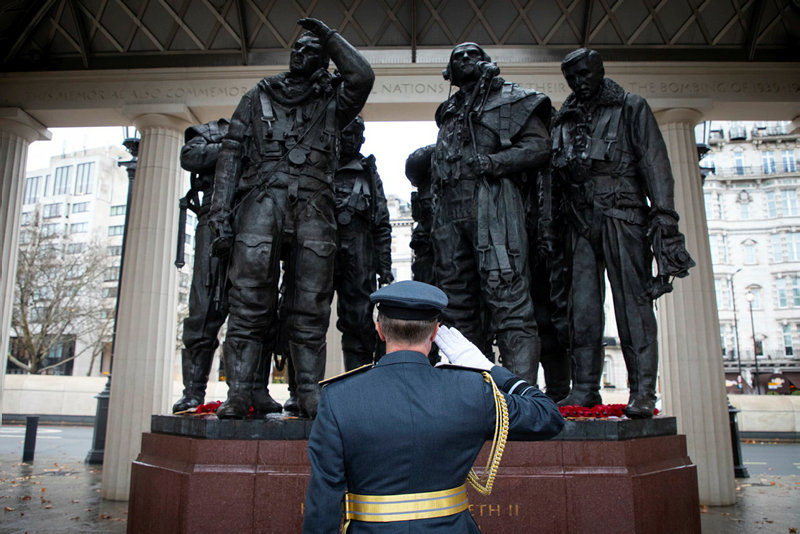
On his retirement, Johnny and his wife moved to Torquay, where they both became active in local politics, both as a local councillor and as the chairman of the constituency party.
Johnny received an honorary doctorate from the University of Lincoln for his contribution to British Society. He was also an Honorary Life Member of the RAF Club in Piccadilly, London. Johnny had published an autobiography recounting his story, George ‘Johnny’ Johnson, The Last British Dambuster.'
A flypast by a lone Spitfire of the Battle of Britain Memorial Flight had been planned to recognise Johnny’s years of support to the Flight but unfortunately was cancelled due to bad weather.
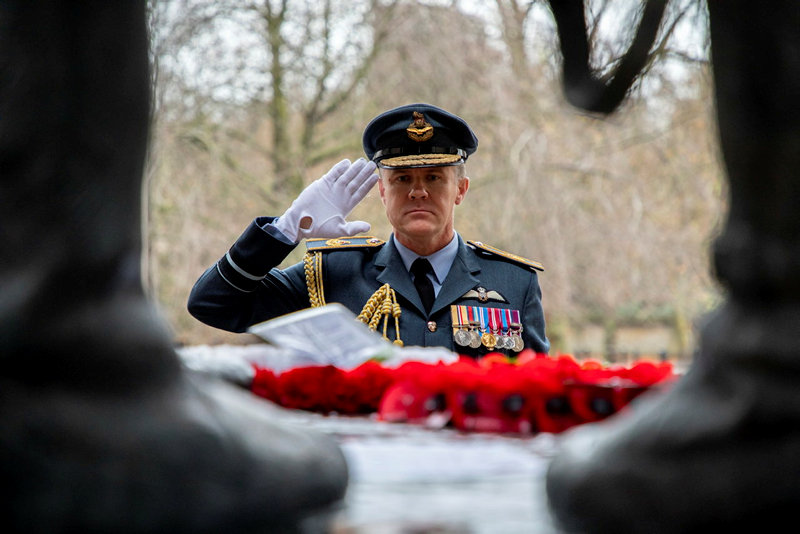
The death of Johnny Johnson also reminds all serving RAF personnel that Johnny, as a Dambuster, was part of an exceptional group of aircrew who conducted the raid and have gone on to inspire subsequent generations. The thoughts and prayers of everyone in the Service are with his family and friends at this sad time.





